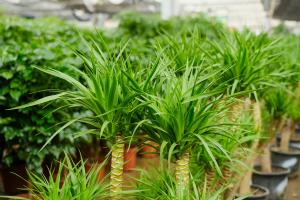Are Floating Plants Good for Aquarium?
In the world of aquariums, floating plants have become increasingly popular, and it is not hard to see why. These plants are an excellent addition to an aquarium, providing both aesthetic value and a range of benefits to the tank and its inhabitants. In this article, we will explore the question, "are floating plants good for aquariums?" and delve into the various advantages and drawbacks of using these plants in your underwater oasis.
The Benefits of Using Floating Plants in an Aquarium
Floating plants have numerous benefits when used in an aquarium. One of the most notable benefits of these plants is their ability to absorb excess nutrients and contaminants from the water, including ammonia, nitrates, and phosphates. This process ensures your water stays clear and healthy for your fish or other aquatic pets.
Another advantage of using floating plants in your aquarium is their ability to simulate a natural habitat for the inhabitants in your tank. They provide a place of refuge, hiding, and breeding space for your fish, shrimp and other aquatic pets. This feature can work to reduce stress in your pets, ultimately resulting in a healthier and more active ecosystem.
Furthermore, floating plants are incredibly versatile and easy to care for. They do not require soil or special substrates, and they do not need a lot of light or nutrients to thrive. This compatibility makes them an excellent option for beginner and experienced aquarists alike.
The Potential Drawbacks of Using Floating Plants in an Aquarium
While the benefits of using floating plants in an aquarium are numerous, they are not without their potential drawbacks. One issue that can arise when using these plants is the potential for an overly dense growth that may block incoming light to the lower regions of the tank, which may harm the growth of other plants in your aquarium.
Another problem that can occur is the rapid growth and proliferation of the plants themselves. Floating plants propagate easily and quickly, which may result in an overgrowth that can, in turn, disrupt the balance of the ecosystem in your tank, by competing for light, resources and oxygen supply.
It is also important to remember that some types of floating plants may not be compatible with some species of aquatic pets. For example, some fish or shrimp species may eat or damage the leaves, stems or roots of specific floating plants. Thus, it is essential to research compatibility and choose the right plants accordingly.
Conclusion
In conclusion, the use of floating plants in an aquarium can bring many benefits to both the aquarium's aesthetics and overall health. They work to improve water quality, provide natural habitat and are incredibly versatile and easy to care for. However, it is important to keep a watchful eye on the growth of these plants and their compatibility with other species in your tank. By doing so, you can make sure your aquarium thrives, providing a beautiful and healthy environment for your aquatic pets.

 how many times do yo...
how many times do yo... how many planted tre...
how many planted tre... how many pine trees ...
how many pine trees ... how many pecan trees...
how many pecan trees... how many plants comp...
how many plants comp... how many plants can ...
how many plants can ... how many plants and ...
how many plants and ... how many pepper plan...
how many pepper plan...































